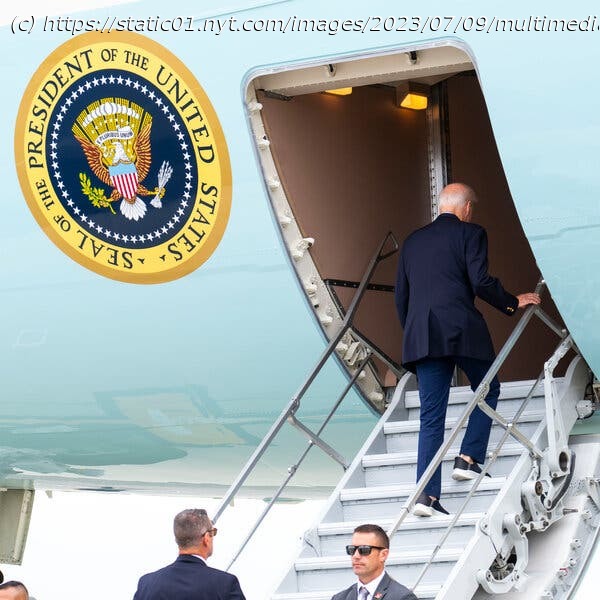A setback in Ukraine’s bid for NATO membership.
Ukraine must wait on NATO membership, Biden says
Ukraine is not ready for membership in NATO, President Biden said in an interview that aired yesterday on CNN. It would be “premature,” he said, to begin the process to allow the country to join the alliance in the middle of a war, because doing so would thrust all NATO members into military conflict with Russia.
Biden said that he did not think there was “unanimity in NATO about whether or not to bring Ukraine into the NATO family now,” and that the process could occur only after a peace agreement with Russia was in place. There would be “other qualifications that need to be met, including democratization,” for Ukraine to be considered for membership, he added.
The president began a trip to Europe yesterday that will include a two-day NATO summit in Vilnius, Lithuania, where Russia’s war in Ukraine — and a decision last week by the U.S. to supply Kyiv with cluster munitions that are banned by most of its allies — will be a main focus.
Analysis: “The main task of this NATO summit is to show the alliance’s unity and solidarity in support of Ukraine,” Steven Erlanger, our chief diplomatic correspondent in Europe, said. “Russia believes, we think, that it can outwait Western support for Ukraine. And truly the main task of this summit is to say to President Vladimir Putin, ‘That’s not going to happen.’” the aims of the summit.
500 days of war: Ukraine’s president, Volodymyr Zelensky, marked the milestone with a video of his visit to a Black Sea island that has become a symbol of Ukrainian resistance.Far-right parties gain ground in Europe
In Spain’s national elections later this month, polls suggest that the liberal prime minister, Pedro Sánchez, will be ousted as conservative parties take control. Vox, a hard-right party, may join more moderate conservatives in a coalition — making it the first right-wing party since Francisco Franco’s dictatorship to enter the national government in Spain.
The rise of Vox is part of an increasing trend of hard-right parties surging in popularity and, in some cases, gaining power by entering governments as junior partners in Europe. Their steady advances have added urgency to a now pressing debate among liberals over how to outflank a suddenly more influential right.
The parties have differences but generally fear the economic ramifications of globalization, and say that their countries will lose their national identities to migration, often from non-Christian or nonwhite-majority countries, but also to an empowered E.






